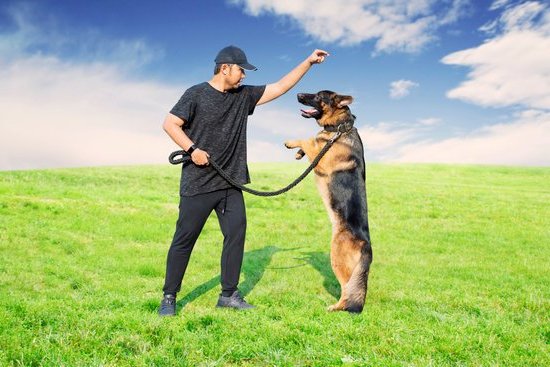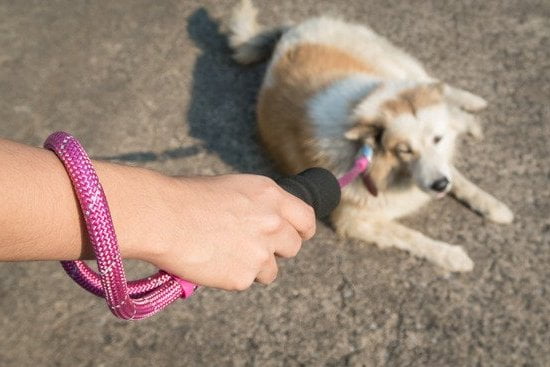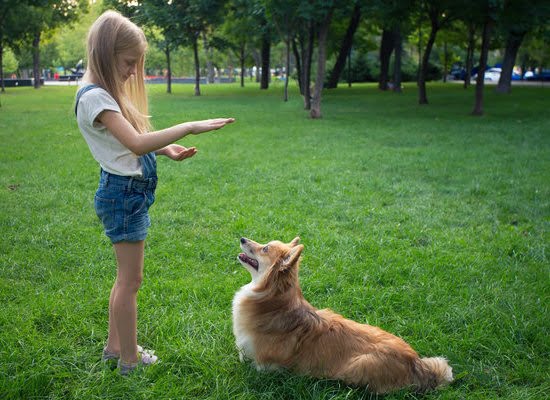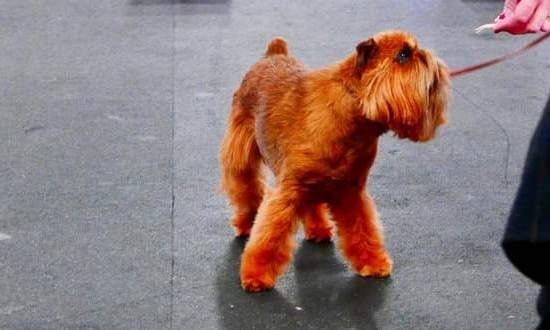Training small dogs is essential for their well-being and for harmonious living with their owners. Having an easily trainable pet brings numerous benefits, including a stronger bond between owner and dog, better behavior in public settings, and a happier and more confident canine companion. In this article, we will explore the factors that contribute to the ease of training small dogs, as well as delve into the top five easiest small dog breeds to train.
Small dogs may seem cute and cuddly, but without proper training, they can become a handful. Training helps establish boundaries, teaches basic commands such as sit and stay, and promotes good behavior both at home and in public. Additionally, training allows small dogs to develop essential skills like socialization with other animals and people.
Factors that contribute to the ease of training small dogs include intelligence, temperament, and breed characteristics. Some breeds naturally possess higher levels of intelligence or exhibit more obedient temperaments than others. By understanding these factors, potential dog owners can make informed decisions when choosing a breed that fits their lifestyle and matches their skill level in training.
In the upcoming sections of this article, we will provide a curated list of the five easiest small dog breeds to train. Each breed will be accompanied by a brief description highlighting their individual abilities and trainability. Furthermore, we will take an in-depth look at specific breeds such as the Pomeranian, Chihuahua, Yorkshire Terrier, and Shih Tzu to explore their unique characteristics that make them remarkably easy to train.
By choosing an easily trainable small dog breed and implementing appropriate training techniques early on, pet owners can set themselves up for success in raising a well-behaved pup. So let’s dive into the factors that make some small dog breeds easier to train than others and discover how you can ensure a positive training experience with your furry friend.
Factors to Consider
When it comes to training small dogs, there are several factors that contribute to their ease of learning. Understanding these factors is crucial in selecting the right breed for those who want a pet that is easily trainable and obedient.
Intelligence
One of the key factors to consider when choosing a small dog breed that is easy to train is intelligence. Intelligent breeds tend to grasp commands quickly and have a higher likelihood of following instructions. Dogs with high intelligence can often respond well to training techniques and learn new tricks faster. However, it’s important to note that intelligence alone does not guarantee trainability, as other factors, such as temperament and breed characteristics, play a role as well.
Temperament
The temperament of a small dog also greatly affects its trainability. Breeds with a calm and relaxed temperament tend to be more receptive to training and are easier to handle during training sessions. Dogs with an even-tempered nature are typically less prone to anxiety or aggression, making them more cooperative learners. On the other hand, breeds with a stubborn or independent temperament may require more patience and consistency in training.
Breed Characteristics
Lastly, considering the specific characteristics of different small dog breeds can provide insight into their trainability. Some breeds are naturally more eager to please their owners and enjoy learning new tasks. These breeds often thrive in obedience training and excel in various canine sports. Others may have inherent instincts related to certain tasks or work purposes, such as herding or tracking, which can make them quick learners in specific areas of training.
By taking into account these factors – intelligence, temperament, and breed characteristics – individuals can make informed decisions when selecting a small dog breed that aligns with their training goals and lifestyle. Investing time in researching different breeds’ traits will not only result in an enjoyable training experience but also foster a stronger bond between owner and pet.
Top Five Easiest Small Dogs to Train
Pomeranian
The Pomeranian breed is known for its intelligence and eagerness to please, making it one of the easiest small dogs to train. These little fluffballs are quick learners and excel in obedience training. They are highly motivated by praise and treats, which makes positive reinforcement an effective training technique for Pomeranians.
When training a Pomeranian, it is important to keep their energetic nature in mind. They have a lot of energy to burn, so incorporating physical exercise into their daily routine can help keep them focused during training sessions. Additionally, Pomeranians can be prone to barking excessively if not properly trained, so teaching them the “quiet” command early on is essential.
Chihuahua
Despite their small size, Chihuahuas are surprisingly intelligent and trainable. They have a natural curiosity and eagerness to learn new things, which makes them receptive to training. Chihuahuas are also known for their loyalty and strong bond with their owners, which further motivates them during the training process.
One characteristic that sets Chihuahuas apart as an easy-to-train breed is their alertness. They tend to be very observant of their surroundings and quickly pick up on cues from their owners. This attentiveness can be harnessed during training sessions by using clear and consistent commands paired with positive reinforcement.
Yorkshire Terrier
Yorkshire Terriers may be small in stature, but they possess a big personality and an impressive ability to learn. They are highly intelligent dogs that thrive on mental stimulation provided through training activities. Yorkshire Terriers are also known for their eagerness to please their owners, which contributes to their trainability.
When it comes to training a Yorkshire Terrier, consistency is key. These dogs respond well to routines and expect clear expectations from their owners. Utilizing positive reinforcement techniques, such as rewards and praise, can help solidify desired behaviors. It is important to keep training sessions short and engaging to hold the attention of these quick learners.
Shih Tzu
Shih Tzus have a gentle and friendly nature, making them easy to work with during training sessions. They are known for being people-oriented dogs who crave attention and love to please their owners. This combination of personality traits makes Shih Tzus highly trainable.
When training a Shih Tzu, it is important to maintain a calm and patient demeanor. These dogs can be sensitive to harsh corrections or raised voices, so positive reinforcement is the most effective training approach. Consistency in commands and routines is also important for successful training with Shih Tzus.
Overall, these five breeds-Pomeranian, Chihuahua, Yorkshire Terrier, and Shih Tzu-are considered some of the easiest small dogs to train due to their intelligence, eagerness to please, and willingness to learn new things. However, it is essential for all dog owners to remember that each individual dog may have unique characteristics that can impact its trainability. With proper training techniques tailored specifically for each breed’s needs, these small dogs can become well-behaved and obedient companions.
Pomeranian
Pomeranians are often considered one of the easiest small dog breeds to train. They are intelligent, curious, and eager to please their owners, which makes them quick learners. Pomeranians have a natural desire to be obedient and responsive, making training sessions enjoyable for both the dog and its owner.
One unique trait that sets Pomeranians apart is their high motivation for treats and positive reinforcement. These dogs love food rewards and respond well to treats during training sessions. It is important to use small, tasty treats as rewards for good behavior, as Pomeranians can easily become overweight if overindulged. Consistency is key when working with Pomeranians, as they thrive on routine and clear expectations.
When training a Pomeranian, it is important to start early and socialize them from a young age. Exposing them to different environments, people, and other animals will help prevent shyness or fearfulness later in life. Socialization also helps develop their confidence, making them more receptive to training commands.
Here are some tips and tricks specifically tailored towards training Pomeranians:
- Keep training sessions short: Pomeranians have high levels of energy but can have short attention spans. Keeping training sessions brief (around 10-15 minutes) ensures that they stay engaged and focused.
- Use positive reinforcement: Reward your Pomeranian with praise and treats when they exhibit the desired behavior. Positive reinforcement helps them associate good behavior with pleasant outcomes.
- Be patient: Like any dog breed, Pomeranians may take time to fully grasp new commands or behaviors. Patience is essential during the training process as consistency will ultimately lead to desirable results.
Chihuahua
The Chihuahua is a small dog breed known for its feisty and lively personality. Despite their size, Chihuahuas are highly trainable and intelligent dogs, making them an excellent choice for those seeking an easily trainable small dog. Their trainability stems from their quick learning ability and willingness to please their owners.
One of the key characteristics that sets Chihuahuas apart as an intelligent and easy-to-train breed is their strong bond with their owners. They are extremely loyal and form deep attachments, which makes them eager to please and cooperate during training sessions. This loyalty also means that they are sensitive to their owner’s emotions, which can be used as a training tool by providing positive reinforcement when they exhibit desired behaviors.
In addition to their intelligence, Chihuahuas have a natural curiosity and eagerness to learn new things. This trait can be harnessed during training sessions by engaging them in mentally stimulating activities such as puzzle toys or obstacle courses. Providing them with regular mental stimulation not only reinforces their obedience but also keeps them mentally sharp and prevents boredom-related behavior problems.
Chihuahuas thrive on positive reinforcement training methods, where desired behaviors are rewarded with praise, treats, or playtime. Consistency is key when training this breed, as they respond well to routines and predictable expectations. It is important to ensure that training sessions are short and enjoyable for both the dog and the owner, as Chihuahuas have relatively short attention spans.
Overall, Chihuahuas possess the intelligence, loyalty, and curiosity that make them highly trainable small dogs. With proper guidance, patience, and consistent positive reinforcement training techniques, Chihuahuas can become well-behaved pets who respond eagerly to their owners’ commands.
| Characteristic | Description |
|---|---|
| Intelligence | Chihuahuas are highly intelligent dogs that quickly learn new commands and behaviors. |
| Loyalty | Chihuahuas form strong bonds with their owners and are eager to please, making them responsive to training. |
| Curiosity | This breed has a natural curiosity and eagerness to learn, which can be utilized during training sessions. |
| Sensitivity | Chihuahuas are sensitive to their owner’s emotions, allowing for effective use of positive reinforcement in training. |
Yorkshire Terrier
Yorkshire Terriers, commonly known as Yorkies, are a small toy breed that is highly trainable. They possess a quick learning ability and a desire to please their owners, making them one of the easiest small dog breeds to train. Their intelligence and eagerness to learn new things contribute to their high trainability.
One key characteristic of Yorkshire Terriers that aids in their trainability is their high level of intelligence. These dogs have been known to quickly grasp new commands and tricks, making training sessions more efficient and effective. It is important to engage their minds and provide stimulating activities during training to keep them interested and focused. Utilizing positive reinforcement techniques such as treats, praise, and rewards can be highly effective in motivating Yorkies during the training process.
When it comes to training Yorkshire Terriers, consistency is key. Establishing a regular routine for training sessions will help them develop good habits and reinforce desired behaviors. It is important to keep the training sessions short and engaging, as Yorkies may become easily distracted or lose interest if the sessions are too long.
As with any breed, it is important to tailor the training strategies specifically for Yorkshire Terriers. Due to their small size, it is recommended to use gentle methods that do not involve physical force or harsh corrections. Positive reinforcement techniques such as clicker training can be particularly effective with this breed. Additionally, incorporating mental stimulation through interactive toys or puzzle games can help satisfy their high energy levels while promoting their trainability.
Shih Tzu
The Shih Tzu breed is known for its friendly and gentle nature, making it approachable when it comes to training. These small dogs are eager to please and respond well to positive reinforcement techniques. With the right training strategies, Shih Tzus can quickly learn commands and behaviors, making them one of the easiest small dog breeds to train.
One key aspect of training a Shih Tzu is understanding their sensitive nature. Due to their gentle temperament, these dogs can become easily distressed by harsh discipline or negative reinforcement. It is crucial to use positive reinforcement methods such as praise, treats, and rewards to motivate and encourage good behavior in Shih Tzus. This approach will create a strong bond between the owner and the dog while fostering a positive learning environment.
In addition to positive reinforcement, consistency is vital in training a Shih Tzu. These dogs thrive on routine and structure. Establishing consistent rules and expectations will help them understand what is expected of them. It is essential to set clear boundaries from the beginning and enforce them consistently throughout the training process.
Training techniques that work well for Shih Tzus include clicker training and crate training. The use of a clicker can help mark desired behaviors effectively, allowing the dog to associate the sound with receiving a reward. Crate training can be beneficial for potty training purposes as well as providing a safe space for your Shih Tzu when you are unable to supervise them.
Overall, when training a Shih Tzu, patience is key. While they may be eager learners, they can also have stubborn moments. It is important not to get frustrated but instead remain calm and consistent in your approach. With patience and positive reinforcement techniques tailored to their sensitive nature, you can successfully train your Shih Tzu to be a well-behaved companion.
References:
– “Shizu Dog Breed Information.” American Kennel Club (AKC), www.akc.org/dog-breeds/shih-tzu/.
Training Techniques for Small Dogs
Training small dogs can be a rewarding and enjoyable experience, but it requires the right techniques to ensure success. Regardless of the breed, there are general training tips and techniques that are effective for small dogs. By utilizing these strategies, you can create a positive and productive training environment for your furry friend.
- Positive Reinforcement: Just like with any dog, using positive reinforcement is key in training small dogs. This means rewarding good behavior with treats, praise, and affection. Small dogs respond well to rewards and will quickly learn what behaviors lead to positive outcomes. Make sure to provide clear cues and be consistent in your rewards.
- Consistency: One of the most important factors in training any dog is consistency. Small dogs thrive on routine and structure, so it’s crucial to establish consistent rules and stick to them. This includes using consistent commands, establishing a regular schedule for feeding and potty breaks, and maintaining consistent expectations for behavior.
- Patience: Training takes time, especially when working with small dogs who may have shorter attention spans or be more prone to distractions. It’s important to remain patient throughout the process and avoid becoming frustrated or giving up too easily. Break down training sessions into short periods of time to keep your small dog engaged and focused.
- Leash Training: Small dogs can benefit greatly from leash training, as it helps to control their size and energetic nature during walks or outdoor activities. Start by introducing your small dog to a properly fitting collar or harness, and gradually acclimate them to being on a leash indoors before venturing outside. Use positive reinforcement techniques during leash training to encourage good walking manners.
- Socialization: Socialization is crucial for all dogs, regardless of size or breed. Exposing your small dog to various people, animals, sounds, environments, and experiences at an early age will help them become well-adjusted adults. Utilize obedience classes, dog parks, and playdates to provide opportunities for socialization and positive interactions.
Remember, it’s essential to tailor your training techniques to suit the needs and personality of your specific small dog breed. Each breed may have unique characteristics that require slightly different approaches or strategies. By combining these general training tips with breed-specific knowledge and techniques, you can set your small dog up for success in their training journey.
Conclusion
In conclusion, training small dogs is an essential aspect of pet ownership that brings numerous benefits. Throughout this blog post, we have discussed various factors that contribute to the ease of training small dogs, such as intelligence, temperament, and breed characteristics. Additionally, we have highlighted four specific breeds – Pomeranian, Chihuahua, Yorkshire Terrier, and Shih Tzu – that are known for their trainability and provided tips specifically tailored to each breed.
Choosing an easily trainable small dog is crucial for a enjoyable and successful pet ownership experience. The breeds mentioned in this article offer a great starting point for those looking to bring home a small dog that can be effectively trained. From the intelligent Pomeranian to the gentle Shih Tzu, these breeds exhibit traits and characteristics that make them ideal candidates for training.
When it comes to training techniques for small dogs, consistency and positive reinforcement are key. By using these techniques along with patience and persistence, any small dog can become well-behaved and obedient. Training not only helps in creating a well-mannered companion but also strengthens the bond between the owner and their furry friend.
Overall, investing time and effort into training your small dog will result in a harmonious household where both you and your pet can thrive. Make an informed decision when choosing your furry companion by considering their trainability. With dedication and the right approach, you can create a joyful environment filled with love and friendship with an easily trainable small dog by your side.
Frequently Asked Questions
What is the smartest small dog to train?
The Border Collie is widely regarded as one of the smartest small dog breeds to train. Despite their larger size compared to other small dogs, their intelligence is unmatched. Border Collies are known for their exceptional problem-solving abilities and quick learning skills, making them highly trainable.
They excel in various activities like obedience training, agility, and even advanced tricks. Additionally, their high energy levels and eagerness to learn contribute to their intelligence and trainability.
What is the #1 small dog breed?
Determining the #1 small dog breed can be subjective as people’s preferences vary based on different factors such as temperament, size, and lifestyle compatibility. However, the Chihuahua is often recognized as one of the most popular small dog breeds globally.
Known for their tiny size and big personalities, Chihuahuas make adorable companions that are lively and alert. Despite their small stature, these dogs exude confidence that compensates for their pint-sized appearance.
What dog are small and low maintenance?
When considering small dogs that require low maintenance, the Shih Tzu often comes to mind. Shih Tzus have a luxurious coat that requires regular grooming to keep it healthy and tangle-free; however, they have a relatively low exercise requirement compared to some other breeds.
This makes them suitable for individuals or families with less active lifestyles or limited living spaces such as apartments. Shih Tzus are generally friendly, adaptable dogs who enjoy spending time with their owners but do not demand excessive physical activity or intense mental stimulation compared to certain high-energy breeds.

Welcome to the blog! I am a professional dog trainer and have been working with dogs for many years. In this blog, I will be discussing various topics related to dog training, including tips, tricks, and advice. I hope you find this information helpful and informative. Thanks for reading!





